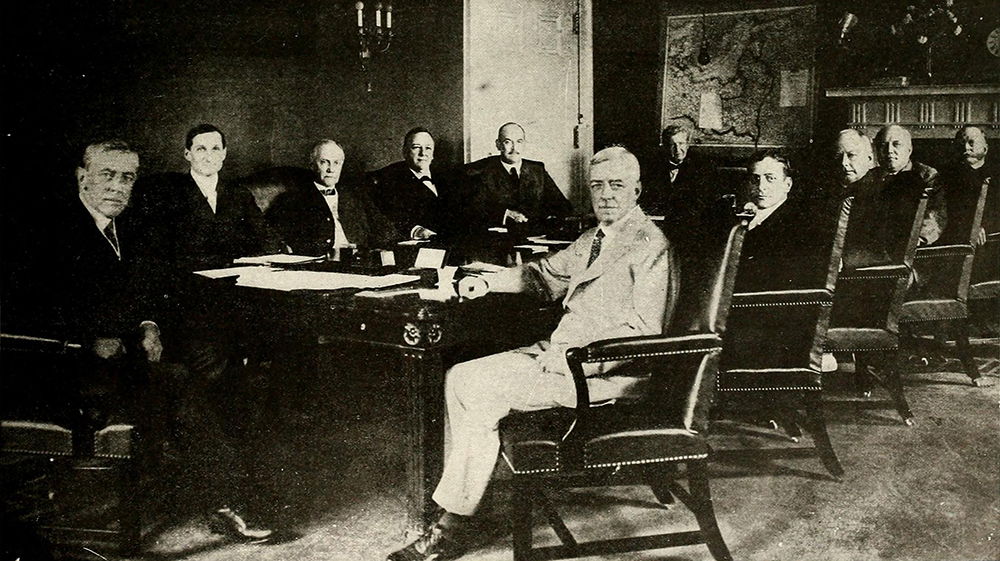Americans take pleasure in analyzing the state of mind of their presidents, especially when it leads to political gains. Former FOX News anchor Tucker Carlson recently “diagnosed” Joe Biden with “cognitive decline,” dementia, and senility. Biden’s former Oval Office Donald Trump was perhaps the most psychoanalyzed president of all time.
Journalists always declared him a sadistic narcissist with delusions of grandeur. His niece, clinical psychologist Mary L. Trump, also joined the act with her explosive book. In Too Much Not Enough: How My Family Produced The World’s Most Dangerous ManIn it, she claimed her uncle “fulfilled the criteria for antisocial personality disorder.” It sold over one million copies in its first week. As Patrick Weil shows, Madman in the White House, this is nothing new. In the 1920s, Sigmund Freud and US diplomat William C. Britt co-authored a study on Woodrow Wilson. Nearly a century later, in 2014, Weyl found the original Britt paper at Yale University.

A Delicate Diagnosis
Today Britt’s fame is largely overshadowed by Freud and Wilson, but in the first half of the 20th century, he was a big figure in American diplomacy. From 1933 he served as U.S. Ambassador to the Soviet Union until 1936, after which he was stationed in France until 1940. Britt began his career during World War I as the Wilson administration’s Assistant Secretary of State for European Affairs. After the armistice, he was part of the American delegation to the Paris Peace Conference, where surrender terms were negotiated between the victorious Entente powers and the defeated Central Powers.
Britt admired Wilson’s idealism and strongly supported the president’s plan to build a liberal world order out of the ruins of war. In Paris, however, he finds himself embarrassed by Wilson’s erratic behavior. He was reluctant to take advice, always tipped over, made numerous concessions, and then arrogantly denied that he had conceded.
The Treaty of Versailles alarmed Brit in particular. He considered it a complete betrayal of Wilson’s professed ideals. Far from ensuring a lasting peace, as the president boasted, it will lead to new wars. Britt, unable to convince Wilson of the error of his ways, resigned and began a campaign against the treaty. Back in the United States, he denounced this before the Senate Foreign Relations Committee. His testimony was effective. The Treaty of Versailles he rejected by the Senate in 1919 and was therefore never ratified by the United States government. Mr. Britt never forgave Mr. Wilson for missing such an important opportunity to reshape international relations.
In 1926 Britt moved to Vienna and became a patient of Sigmund Freud. The therapist and diplomat bonded over their shared interest in the psychology of world leaders. Four years later, they co-wrote Wilson’s “Spirit Biography”. Thomas Woodrow Wilson: A Psychological Study.
Their theory was simply that Wilson was a very pious man who suffered from a Messiah complex. “He … always loved himself,” they wrote. “I find no evidence that he lacked admiration for himself or attention to his own exaggeration.” Wilson believed his purpose was to take back the world. This megalomania left him unable to handle when reality did not match his wishes. Britt and Freud argued that this was the reason why he acted so strangely at the Paris Peace Conference.
Their research was not published. At the time of the manuscript’s completion, Britt was to serve as U.S. ambassador to the Soviet Union under President Franklin Delano Roosevelt. Publicly denouncing Wilson, a fellow Democrat and one of FDR’s leaders, would be tantamount to suicide for his career. Britt shelved the manuscript for over 30 years.
He finally published the book in 1966, but after removing the most jarring parts. By then, Freud had long died and Britt himself had only a few months to live. The book was rejected by critics and academics alike. The original manuscript, co-authored with Freud, was presumed lost until 2014 when Patrick Weil found it in Britt’s box of papers.
Weil’s discovery is the starting point for an interesting book that can be called a biography of a biography. Deeply researched and academically tracked by Thomas Woodrow Wilson: A Psychological Study From Conception to Publication, it analyzes its content and chronicles the lives of authors and their subjects. The book is mostly occupied by Britt, but it also has compelling chapters on Freud and Wilson. Weil does an excellent job of analyzing the political significance of the latter and exposing his grave flaws.
Nevertheless, Weil’s monograph is to niche to be of interest to the general reader looking for an introduction to Wilson and his decisions at the Paris Peace Conference. But it will certainly appeal to students of US diplomatic history and psychoanalysis. Britt’s character is thorough, and his treatment of Freud’s theory is rigorous.
But where Weil excels is in revealing the contemporary implications of his research. “Despite being separated by 90 years, Freud and Bullitt’s call to recognize the signs of a pathological personality in our leaders has lost none of its urgency. no,” he writes. Given the political developments of the past decade, it may be added that Freud’s and Britt’s calls have become increasingly urgent.
read Madman in the White HouseI couldn’t help but think of those who are currently in positions of power around the world. I suspected that some kind of “Messiah complex” would help rather than hinder would-be leaders. In other words, it doesn’t have to be infuriating to want to work here, but it could be helpful.
The Madman in the White House: The Spiritual Biography of Sigmund Freud, Ambassador Britt, and the Lost Woodrow Wilson
Patrick Weil
Harvard University Press, 400pp, £30.95
buy from bookshop.org
Theo Zenou He recently completed a Ph.D. in American History from the University of Cambridge.
